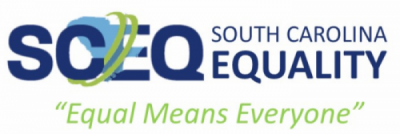Notice: Undefined index: file in /home/scequality/equalmeanseveryone.org/wp-includes/media.php on line 1676
Notice: Undefined index: file in /home/scequality/equalmeanseveryone.org/wp-includes/media.php on line 1676
SC Equality often receives questions from LGBT South Carolinians who ask – What can I do to protect myself and my family? We know that as both policies and attitudes continue to evolve around our state and country, it is important that you and your family know what resources are available to you in our state. That is why we have developed the Know Your Rights campaign.
Our Know Your Rights is here to help you understand your rights. Centered on our organization’s key focus areas, our program will collect municipal, state, and federal policy information into one place – a one-stop shop for staying informed. Here you will find fact sheets, sample legal forms, and recommended questions to ask your lawyer.
At SC Equality, we know that an important part of knowing where we are headed requires understanding where we currently stand, which leads us to ask: Do you know your rights?
Questions to Ask a Lawyer
We recommend that you and your loved ones take the information and questions contained on this page and seek the input of a lawyer in South Carolina who practices estate planning to safeguard your rights. Click here to download the fact sheet.
2014 was a big year for the Lesbian, Gay, Bisexual, and Transgender community. Because of the federal lawsuit filed by SC Equality, same-sex marriages became legal in South Carolina. The lives of many loving and committed same- sex couples have been enriched by these significant strides towards equality. Same-sex couples now, more than ever, have greater access to options that can help provide a sense of security for you and your family. As we continue to work across our state to make equality for all a reality, SC Equality is determined to make sure that you and your family Know Your Rights.
What you need to know of marriage equality in South Carolina.
Marriage Licenses
To get married in the state of South Carolina, you need to obtain a marriage license. South Carolina does issue marriage licenses for same-sex couples. The following requirements apply to both residents and non-residents:
- Both parties must appear together at the office of a South Carolina county probate judge and file a written application. This application asks for the full name, social security number or alien identification number, age, and place of residence of each person. It is a sworn statement that must be signed by both parties and then notarized in the office of the probate judge.
- Some probate judges require both applicants to show their social security cards.
- There is a waiting period after the application is filed before the license can be picked up and the marriage can take place. This waiting period
- varies from county to county, so please contact the appropriate county probate judge at least a week before you plan to get married.
- If you are 18 years old or older, you do not need parental consent. But you must provide proof of your age (or simply identification if you’re over age 25) by presenting one of the following:
– Valid driver’s license or state-issued identification card
– Original birth certificate or a certified copy of your birth certificate
– Current military identification card
– Current passport; plus current visa attached if not a US citizen - If you are under the age of 18, parental consent can be granted for boys and girls who are at least 16 years old. All minor applicants must file an original birth certificate or a certified copy of their birth certificate, which becomes a part of their permanent application record. The parent or legal guardian of a minor applicant must appear at the same time as the minor to present identification and sign a form consenting to the marriage.
- No blood test or physical exam is required.
- South Carolina residency is not required.
- A South Carolina license can be used in any county in the state.
- If recently divorced, legal proof of the divorce may be needed. This varies by county so please contact the appropriate county probate judge to confirm that county’s requirement.
- The fee for a marriage license varies from county to county.

Medical Decision-Making
How can I best protect the wishes of my partner in the event of a health-related emergency?
There are options that exist for couples who would like to honor the wishes of their partner when it comes to important life-making decisions. A Healthcare Power of Attorney and living wills are legal documents that are designed to honor the wishes of a person who cannot speak for themselves regarding health care decisions. Without these documents, it may be difficult for same-sex couples to make the already tough decisions on behalf of their partner due to a lack of legal recognition.
- Health Care Power of Attorney (sample form)
- Allows you to give the person of your choosing the right to make medical decisions for you if are no longer able to do so.
- A statutory form exists in South Carolina (recommended for use as it is the one healthcare providers are most familiar with).
- Can include provisions for funeral planning authority.
- The South Carolina form include a “living will” portion, which allows for you provide guidance regarding on life-sustaining treat
- Living Will
- A directive that provides instructions directly to the healthcare provider regarding end of life decisions.
- A statutory form exists in South Carolina (recommended for use as it is the one healthcare providers are most familiar with).
- Known as a Declaration for the Desire of a Natural Death in South Carolina.
- Many forms include a “living will” portion, which allows for you make decisions on life-sustaining treatment, such as resuscitation orders.

Preparing for the Unexpected
How can my partner and I best protect our financial assets if one of us dies or becomes incapacitated?
An estate attorney can provide you and your partner legal resources that serve some of the needs of your relationship. For example, a durable power of attorney allows you to give permission to your partner to make financial decisions on your behalf. A Last Will and Testament is necessary to ensure that your last wishes are honored in terms of who gets what.
- Wills & Titling
- South Carolina, same-sex couples are not entitled to the property of their partner without proper documentation of the decedent’s last wishes.
- There are several options available to hold assets jointly including; joint property ownership with rights of survivorship and tenants in common.
- Couples should consult a lawyer in order to determine the best options.
- South Carolina, same-sex couples are not entitled to the property of their partner without proper documentation of the decedent’s last wishes.
- Durable Power of Attorney (Financial)
- Allows you to give the person of your choosing the right to make financial decisions on your behalf; this is especially important if you become incapacitated.
- This will allow your selected agent the ability to pay bills, manage bank accounts, make important insurance decisions, and collect benefits on your behalf; such as Medicare, Social Security to name a few.
- Beneficiary Designation
- An option that may exist to allow your assets to be distributed in the event of your death to the person of your choosing.
- Beneficiary examples include; retirement plans, life insurance, and Transfer on Death (TOD) accounts.
- Cohabitation Agreement
- Allows couples who plan to live together an opportunity to agree on how bills will be paid and responsibilities will be shared while they live together.
- In the event that the relationship ends, this agreement may help prevent confusion in regards to who gets what.

Structuring Finances
Can my partner and I have structure regarding our financial assets during our relationship and provide guidance for if it ends?
A family law lawyer with experience in same-sex couple’s issues can provide you and your partner to resources to serve some of the needs of your relationship. For example, the purchase and financing of a home is a significant investment that both partners deserve to have protection regarding. At present, opposite sex married couples go to Family Court for a supervised means of dividing the assets of the relationship. For Same Sex couples, a Partnership Agreement can address how to handle finances during the relationship as well as providing a structure to help dissolve the jointly owned assets.
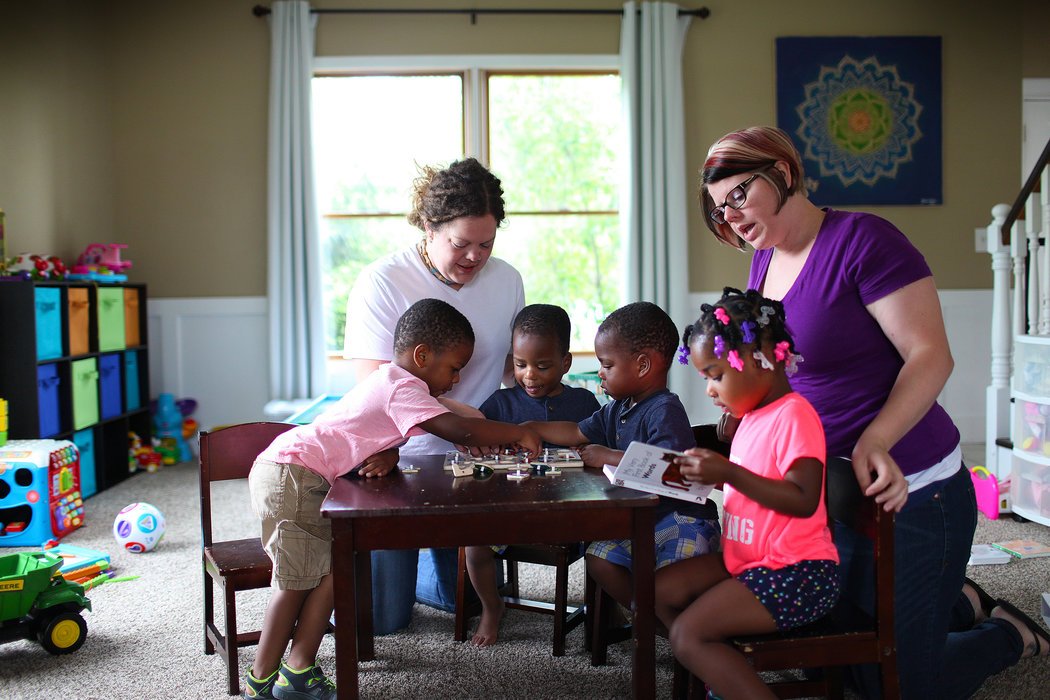
Parental Recognition & Protections
What legal protections are my partner and I entitled to when it comes to parenting rights?
According to data from the Movement Advancement Project, 1 in 4 of South Carolina’s same-sex couples are raising children — that is a lot of mothers, fathers, and children who face daily uncertainty. While state’s laws simply do not address same-sex couples, there are steps that can be taken to maximize your rights as parents.
- Guardianship Agreement
- Document allows the biological parent to clearly indicate the caregiver of choice in the event that something happens.
- May help prevent conflict among family members.
- Gives guidance to the court in the event of a family conflict
- Co-parenting Agreement
- Allows couples to share parental responsibilities of a child when legal adoption is not available.
- Can include:
- Consent for medical care of child.
- Proposed Custody Agreement in the event of separation.
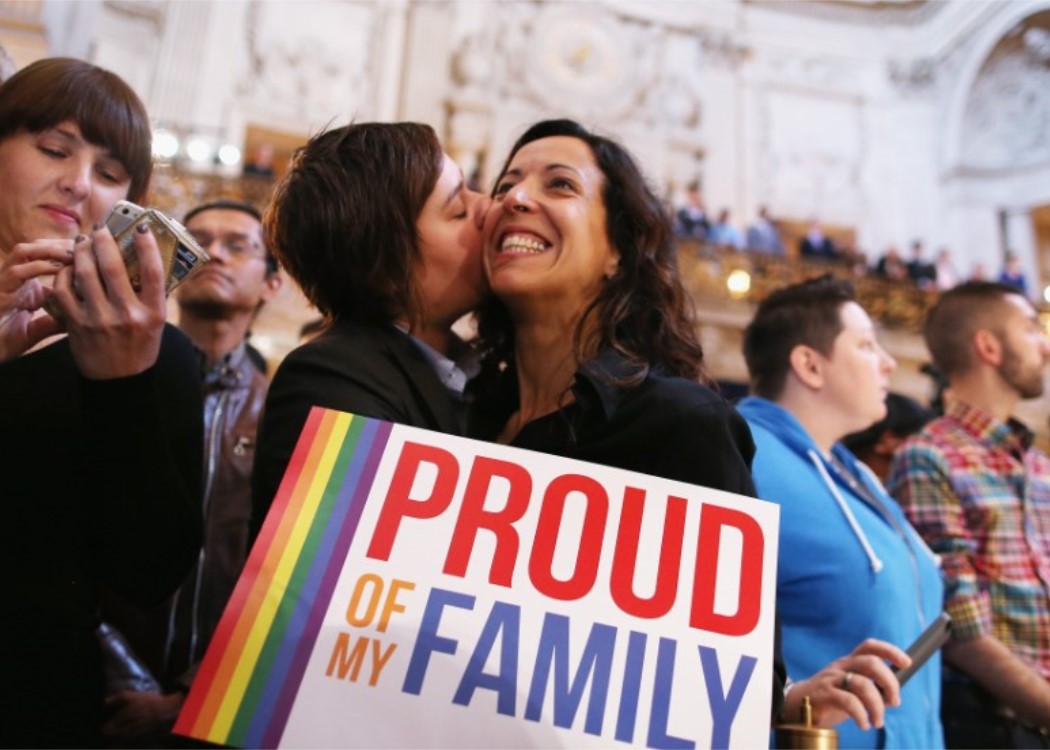
Federal Marriage Recognition
My partner and I were legally married in another state but live in South Carolina where our marriage is not legally recognized by the state; what benefits are we entitled to, if any?
If you and your partner are legally married but currently reside in South Carolina, understanding your rights in regards to your entitled marriage benefits is confusing, ever changing, and at times, incredibly overwhelming. Just recently the US Justice Department announced that all marriages, regardless of genders and regardless of how your state treats your marriage, will receive full recognition from the federal judicial system. Translation: the government is on your side. As these issues continue everyday to work themselves out, it is important that you and your partner know what you are entitled to.
Here are just a few:
- Currently your marriage will be considered by:
- The Department of Defense
- The Department of Veterans Affairs
- Federal Retirement benefits– may vary by department.
- Immigration and Naturalization Service (INS)
- Internal Revenue Service
- Social Security Administration for Supplemental Security Insurance (SSI) determination.
- You will be considered married when determining eligibility.
- These federal agencies/departments have issued final determinations since the striking down of the Federal Defense of Marriage Act Part 3:
- Social Security Administration regarding:
- Death Benefits
- Retirement Benefits
- Survivorship Benefits
- Medicare
- Social Security Administration regarding:
Disclaimer
The Know Your Rights campaign is intended to provide general information regarding major areas of state and federal laws related to violence against LGBT people. It should not be construed as legal advice or a legal opinion on any specific facts or circumstances, and does not create an attorney-client relationship. Past practice is no guarantee of future developments. While laws and legal procedure are subject to frequent change and differing interpretations in the ordinary course, this is even more true now with daily advances in LGBT equality. SC Equality cannot ensure the information is current or be responsible for any use to which it is put.
Contact a qualified attorney or law enforcement officer in South Carolina for legal advice about your particular situation.
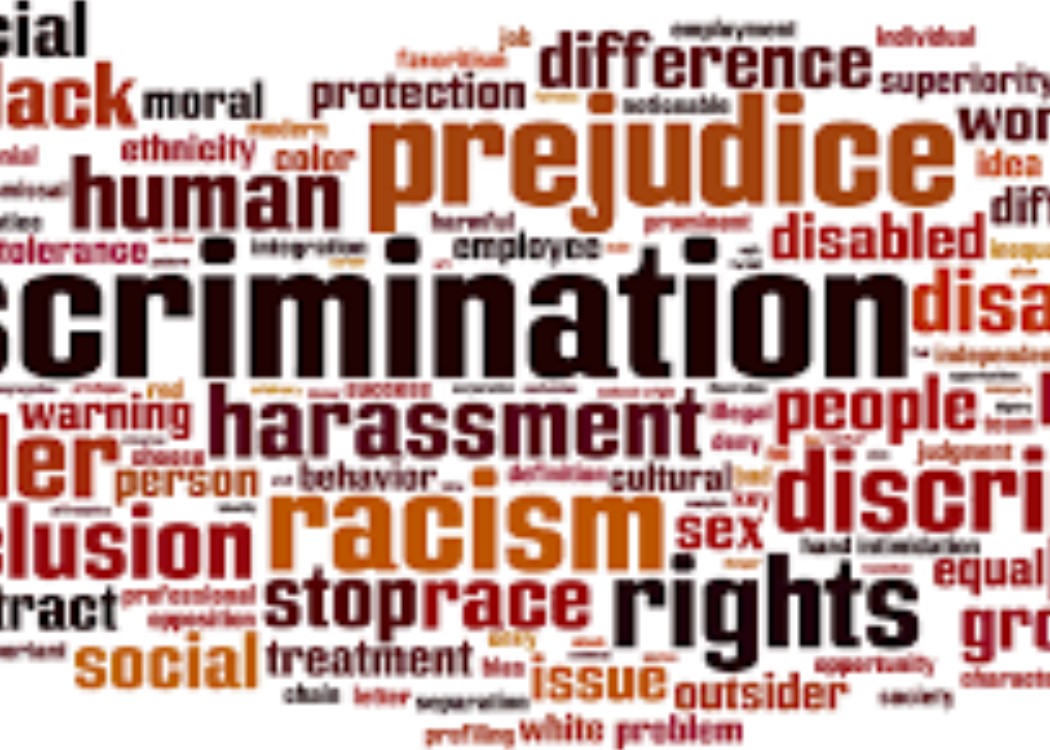
A major challenge faced by South Carolina’s LGBT community often comes in the form of discrimination. Protections in employment, housing, public accommodations, and including health care are essential to ensuring the livelihood and economic security of all individuals and their families. While progress has been made in some areas of our state to stop discrimination on the basis of sexual orientation and gender identity, many LGBT South Carolinians still find themselves in situations where they face discrimination every day. That is why it is important to Know Your Rights.
Employment
Can a potential employer in South Carolina refuse to hire me because of my sexual orientation or gender identity? Can my current employer fire me or deny me a promotion on the basis of my sexual orientation or gender identity?
Public Employers
Federal – Currently there are no federal statutes protecting LGBT employees from discrimination.
- The Employment Nondiscrimination Act (ENDA) recently made historic progress when it was passed by the Senate; the bill must now be approved by the House of Representatives and signed by the President to become law.
- Most employees of federal government agencies and employees of contractors who do business with the federal government are covered by internal equal opportunity policies covering LGBT workers as recently mandated by the Equal Employment Opportunity Commission and contained in Executive Orders. Employees can assert their rights by contacting an EEO counselor, filing a complaint with the Office of Special Counsel, or with the Office of Federal Contract Compliance Programs (OFCCP). A notice of employees’ rights and the appropriate complaint mechanism should be posted in the workplace or contained in an employee handbook or policy manual.
State – There is not statute protecting LGBT employees from discrimination in the workplace.
- A bill pending in the state legislature, the Workplace Fairness Act would end employment discrimination on the basis of both sexual orientation and gender identity in workplaces with 15 or more employees.
- Several state agencies, such as public universities, have adopted internal non-discrimination employment policies on the basis of sexual orientation: University of South Carolina System, Clemson University, and the Citadel.
Local Government – Two cities and two counties in South Carolina protect government workers from discrimination on the basis of sexual orientation and gender identity.
- Cities:
- Columbia (Employee Handbook; Section 1, p. 5)
- Charleston (The Williams Institute; reference #41)
- Counties:
- Richland County (Item 26; p. 120-122)
- Charleston County (only sexual orientation) (The Williams Institute; reference #43)
Private Employers
- Many larger corporations have implemented employment non-discrimination policies which include sexual orientation and gender identity.
- The Williams Institute reports that 8 out of South Carolina’s top 10 employers have non-discrimination policies that include both sexual orientation and gender identity: Walmart Store, Inc, Greenville Health System, Palmetto Health, Blue Cross and Blue Shield of South Carolina, Food Lion, the Boeing Company, Lowe’s Companies, Inc, Wells Fargo and Company.
- There are a few ways you can find out more about whether your company has an LGBT-inclusive non-discrimination policy:
- Review your company’s website; often this information is included under “job”, “employment”, “equal employment”, or “human resources”.
- heck your employee handbook or equal employment opportunity posters that are required to be posted in common areas of the workplace.
- Check out the Human Rights Campaign’s (HRC) Corporate Equality Index. This guide scores larger corporations on LGBT inclusiveness in regards to employment.
- Ask your company’s Human Resources Director but be careful because asking may imply your sexual orientation or gender identity.

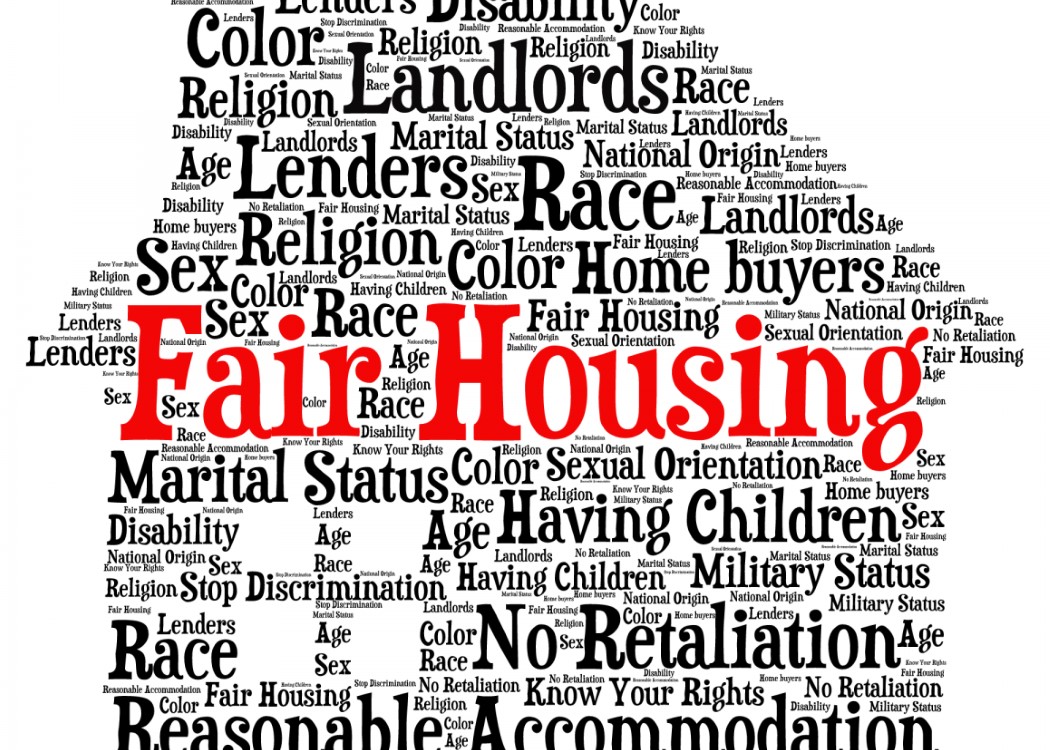
Housing
Can my partner and I be denied housing in South Carolina due to sexual orientation and/or gender identity?
Federal
- Title VIII of the Civil Rights Act of 1968 states that it is illegal to discriminate or refuse housing based to seven protected classes: race, color, religion, national origin, sex, familial status, and disability.
- While this federal law will not completely protect all LGBT individuals from housing discrimination, The U.S. Department of Housing and Urban Development (HUD) states that housing providers who receive HUD funding, or lenders who are federally insured by the Federal Housing Administration, are prohibited from discriminating against buyers, tenants, or potential borrowers on the basis of sexual orientation or gender identity. (24 CFR § 5.105)
State
Currently there is no statute protecting LGBT South Carolinians from housing discrimination.
Local Government
Currently three cities in South Carolina prohibit housing discrimination on the basis of sexual orientation and gender identity.
- North Charleston (CODE § 10-92)
- Charleston (CODE § 16-20)
- Columbia (CODE § 11-393)
Public Accommodations
Could my partner or I be discriminated against when trying to get a hotel room, dine together at a restaurant, or be denied other services in South Carolina?
Federal/State:
Currently, there are no federal or statewide protections for the LGBT community in public accommodations.
Local Government:
- City
- Folly Beach (Sexual Orientation only) (The Williams Institute; reference #51)
- Columbia (CODE §11-503)
- Charleston (CODE § 16-29)
- County
- Richland County (The Williams Institute; reference #47)
- Myrtle Beach Human Rights Commission: Myrtle Beach offers a Human Rights and Fair Housing Hotline, available 24 hours a day to assist in city efforts to assure equal rights and opportunities for All citizens and visitors of Myrtle Beach. Call 843-918-1130 to share your concerns.
Private: You should however be aware that many businesses do prohibit this type of discrimination. If you experience discrimination on the basis of your actual or perceived sexual orientation or gender identity, you should be sure to research the individual business’s policies on such practices.

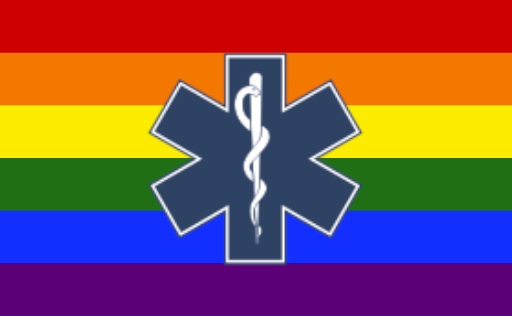
Healthcare
What are my rights in regards to visiting my partner while they are in the hospital? Could I be denied medical services?
- Often, services provided by physicians, hospitals, and healthcare providers are included under public accommodation policy. Particularly medical facilities which provide overnight accommodations. See municipal protections above.
- The Human Rights Campaign (HRC) offers an online resource which scores the inclusiveness of hospitals in the country called the Healthcare Equality Index.
- The following South Carolina Health Facilities are included as 2013 leaders:
- VA Ralph H. Johnson Medical Center – Charleston
- VA Wm. Jennings Bryan Dorn Medical Center – Columbia
- Bon Secours St. Francis Downtown – Greenville
- Bon Secours St. Francis Eastside – Greenville
- Greenville Memorial Hospital – Greenville
- Patewood Memorial Hospital – Greenville
- Greer Memorial Hospital – Greer
- Hillcrest Memorial Hospital – Simpsonville
- North Greenville Hospital – Traveler’s Rest
Hospital Visitation
- As of 2011, the federal government requires that any hospital accepting Medicaid or Medicare must grant patients the ability to decide who can visit them regardless of sexual orientation or gender identity.
- The Health Insurance Portability & Accountability Act (HIPAA), which does protect patient confidentiality, should not be used to as a basis for discrimination.
- Also see information on the benefits of Medical Power of Attorney from our Know Your Rights – Relationship Protections fact sheet.
Disclaimer
The Know Your Rights campaign is intended to provide general information regarding major areas of state and federal laws related to violence against LGBT people. It should not be construed as legal advice or a legal opinion on any specific facts or circumstances, and does not create an attorney-client relationship. Past practice is no guarantee of future developments. While laws and legal procedure are subject to frequent change and differing interpretations in the ordinary course, this is even more true now with daily advances in LGBT equality. SC Equality cannot ensure the information is current or be responsible for any use to which it is put.
Contact a qualified attorney or law enforcement officer in South Carolina for legal advice about your particular situation.

Safe & Just Schools
For many of South Carolina’s LGBT youth, the journey to self-discovery can encompass both uncertainty and fear. This is why it is important that all students feel safe in their educational environment. According to a study by the Williams Institute, statistics show that 40% of homeless youth identify as LGBT. Additionally, GLSEN finds that finds that 8 out of 10 LGBT students experience harassment on the basis of their identity. These staggering numbers are unacceptable and South Carolina’s youth deserve so much more. We must ensure that all of our LGBT and allied students Know Their Rights.
Gay-Straight Alliances
Am I legally allowed to start a GSA at my middle school, high school, or on my college campus?
Federal
- Equal Access Amendment (20 U.S. Code § 4071) (Equal Access Act)
- States that “if a public school permits a non-curricular clubs, then it must allow students to form a GSA” … treating it the same as any other non-curricular club. (ACLU)
- The ACLU has published a resource guide of previous GSA Federal Court victories to be cited as examples the Equal Access Amendment – Follow The Link
South Carolina
The South Carolina Gay-Straight Alliance is a proud program of South Carolina Equality, helping mentor GSA leaders from around the state in the areas of fundraising and GSA maintenance. The SC GSA Network also serves as a training resource for education professionals; including community agencies, counselors, and school faculty & staff on the topic of LGBTQ youth competency. Trainings utilize information regarding state and federal mandates, ethical codes of conduct by discipline, and empirically based practice for negotiating the concerns and realities of LGBTQ youth. For more information, please contact Jennifer Tague at jennifer@scequality.org
In South Carolina there are currently:
- 24 high school GSA’s
- 18 college/university GSA’s
- 4 graduate school GSA’s
Starting a Gay-Straight Alliance
- Need tips on starting a Gay-Straight Alliance in your school? Check out this resource guide.
- Here you can find an open letter to school administrators and staff on why they must allow students to form Gay-Straight Alliances in a public school setting. (See this open letter from the ACLU to school leaders)
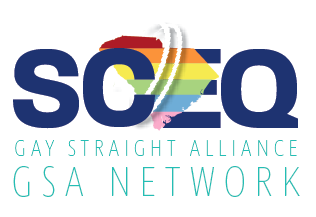

Harassment & Bullying
Am I protected in my school from harassment and bullying in school on the basis of sexual orientation or gender identity?
Federal
- Currently, there are no federal laws which aim to directly address bullying; however, there is an area of overlap between “discriminatory harassment” under civil rights statutes.
- These statutes are to be enforced directly by the Department of Education and the Department of Justice and include:
- Title IV and Title VI of the Civil Rights Act of 1964
- Title IX of the Education Amendments of 1972
- Section 504 of the Rehabilitation Act of 1973
- Title II and Title III of the Americans with Disabilities Act
- It should be noted that while sexual orientation and/or gender identity are not explicitly protected under these statutes, harassment often will overlap in these other areas, under which all students are protected.
- Check out the link for more information on these may apply, the responsibilities of schools to protect students from harassment, along with additional resources. Check out stopbullying.gov for more information.
State
- Safe Schools Climate Act of 2006 (S.C. Code Ann. § 59-63-110 (2006).)
- Aims to prevent school harassment, intimidation, or bullying in order to “protect the health and welfare of, and improve the learning environment for South Carolina school children,” however this law does not specifically address sexual orientation or gender identity.
- Each school district in South Carolina is required to adopt a policy prohibiting harassment, intimidation, or bullying.
- Accordingly, each district policy must include 10 standard components as specified by the law.
- A complete list can be found under Section 59-63-140 (B) of the law but include procedures for reporting and investigating violations of the policy.
- The State Board of Education has developed a “model policy” to be used to help schools comply with the law. These are available upon request from the South Carolina Department of Education.
- For more information on your school’s policy or how to report incidents of bullying or harassment, check your local school district’s website.
Local
- The Safe Schools Climate Act of 2006 recommends that each school district implement a bullying prevention program to ensure compliance with the law.
- The following districts have enumerated policies which name protected classes:
- Charleston (enumerated with “sexual orientation” & “gender identity”) – Click Here
- Richland One (enumerated with “sexual orientation” & “gender identity”) – (policy not yet online…)
- Anderson Five (enumerated with “sexual orientation” only) – Click Here
- Allendale (enumerated with “sexual orientation” only) – Click Here
- Together, the South Carolina Department of Education and ETV have developed a model bullying prevention program.
- OLWEUS is another commonly implemented bullying prevention program which provides a host of resources to educators, administrators, and students in regards to bullying prevention.
Privacy
Am I entitled to privacy in regards to my sexual orientation and/or gender identity within the context of a school setting?
Federal
- The ACLU states that “students have the constitutional right to share or withhold information about their sexual orientation or gender identity from their parents, teachers, and other parties, and it is against the law for school officials to disclose, or compel students to disclose, that information.”
- Refer:
- Whalen v. Roe, 429 U.S. 589, 599-600 (1977)
- Sterling v. Borough of Minersville, 232 F.3d 190, 196 (3d Cir. 2000) (“It is difficult to imagine a more private matter than one’s sexuality and a less likely probability that the government would have a legitimate interest in disclosure of sexual identity.”);
- Eastwood v. Dep’t of Corr., 846 F.2d 627, 631 (10th Cir. 1988) (right to privacy “is implicated when an individual is forced to disclose information regarding sexual matters.”).
- ACLU’s Letter to a School Administrator Regarding LGBT Privacy
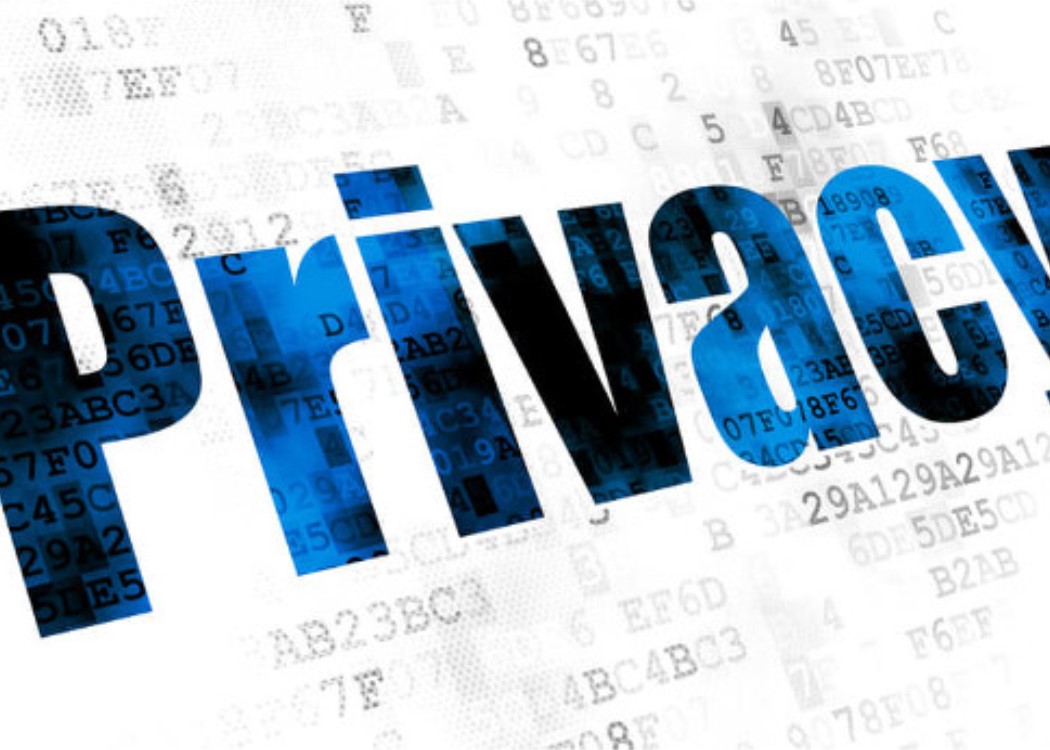
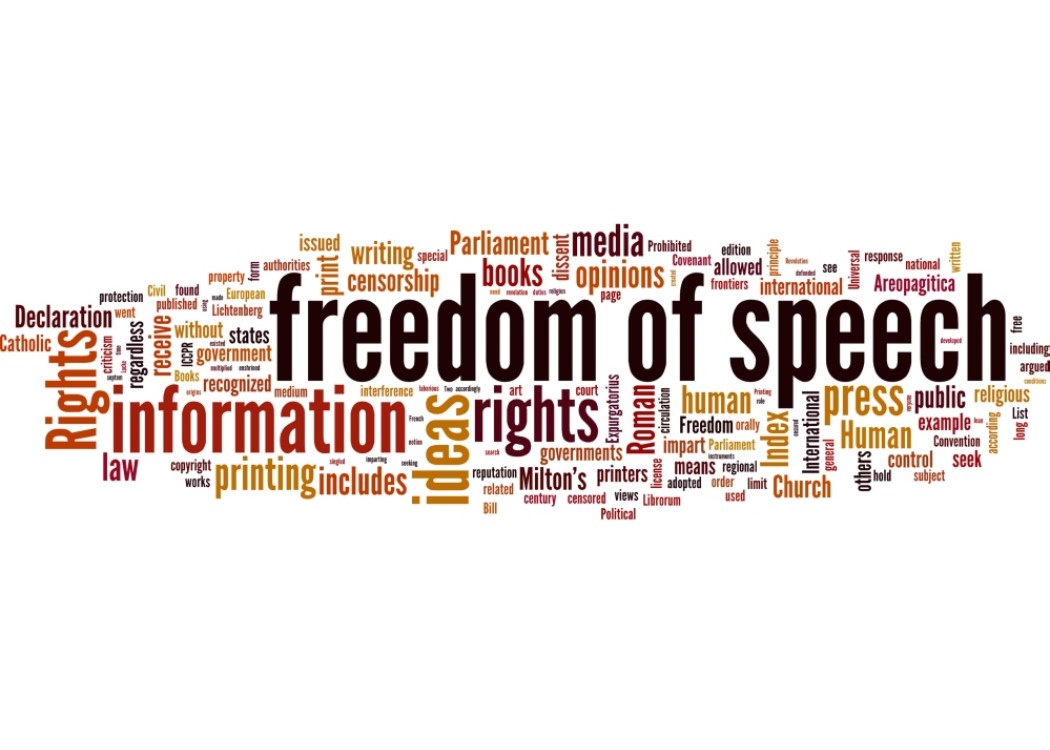
Freedom of Speech and Expression
As a student, am I allowed to speak openly about or my sexual orientation or gender identity in my school?
Federal
- The First Amendment of the United States Constitution guarantees an individual’s right to freely express themselves as they so choose. When applied to context of a public school setting, the Supreme Court found in the 1969 case of “Tinker v. Des Moines Independent Community School District” that these rights still apply, so long as the expression is not “materially or substantially disruptive.”
- For more, see the ACLU’s Your Right to Free Expression fact sheet.
State
Comprehensive Health Education Act (CHEA)
- South Carolina law states (SECTION 59-32-30(5)) that during Comprehensive Health Education including sexual health education, “The program of instruction provided for in this section may not include a discussion of alternative sexual lifestyles from heterosexual relationships including, but not limited to, homosexual relationships except in the context of instruction concerning sexually transmitted diseases.”
- This law is often misinterpreted as a “no promo homo law” — meaning that no school teacher or course can discuss LGBT topics anywhere on school grounds. Specifically, this section is ONLY referencing which topics can be covered in comprehensive health courses.
- Additionally, as the law states, health course topics which cover sexually transmitted diseases ARE allowed to discuss risk factors and prevention methods for same-sex, sexual activity in the context of preventing STDs.
- If you are a teacher or student and have experienced school administration tell you otherwise, please contact SC Equality and we will look into the matter further.
Trans* and Gender Non-Conforming Issues
Are there any specific issues I should be aware as a Trans* or Gender Non-Conforming student?
As a Trans* or gender non-conforming student, you should be aware that you are also protected by the same aforementioned policies regarding harassment and bullying, free speech and expression, and the right to privacy. To better understand how the specifically apply, see GLSEN and the ACLU’s Guide for Trans and Non-Conforming Students.
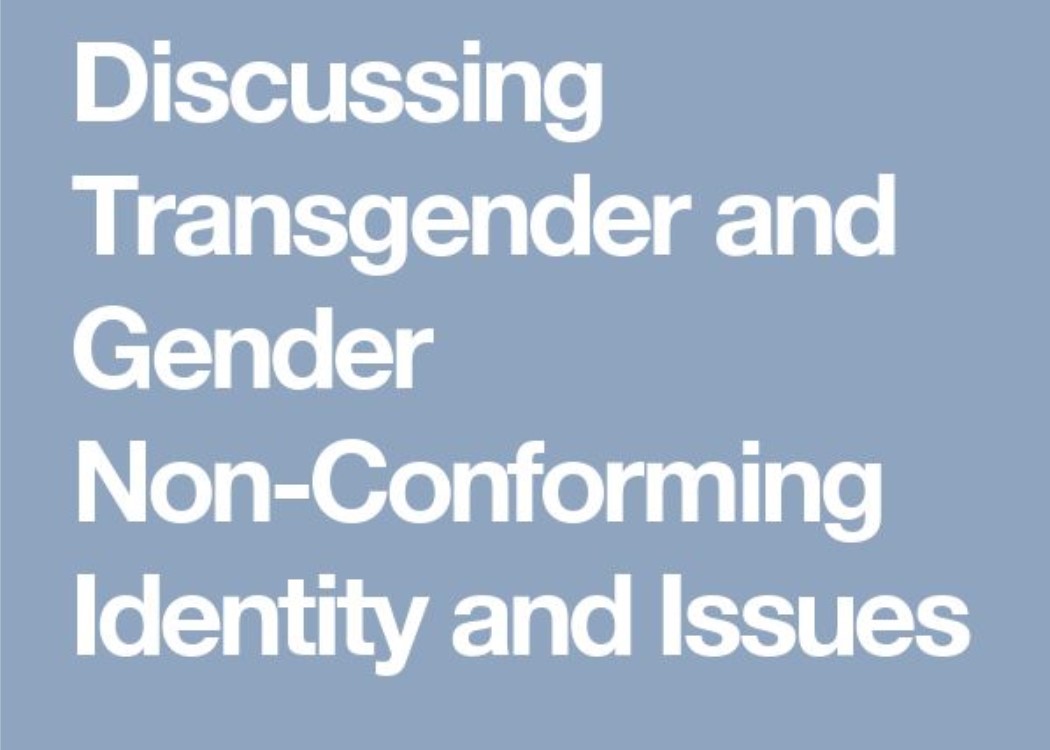
Disclaimer
The Know Your Rights campaign is intended to provide general information regarding major areas of state and federal laws related to violence against LGBT people. It should not be construed as legal advice or a legal opinion on any specific facts or circumstances, and does not create an attorney-client relationship. Past practice is no guarantee of future developments. While laws and legal procedure are subject to frequent change and differing interpretations in the ordinary course, this is even more true now with daily advances in LGBT equality. SC Equality cannot ensure the information is current or be responsible for any use to which it is put.
Contact a qualified attorney or law enforcement officer in South Carolina for legal advice about your particular situation.
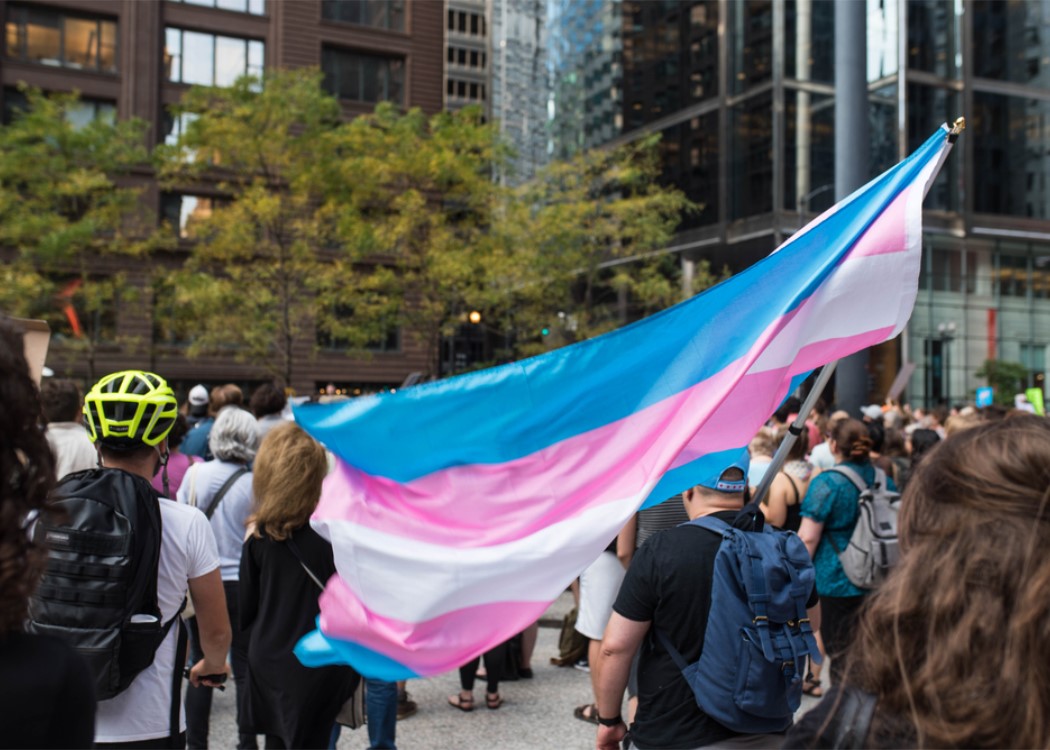
Transgender Inclusion & Protection
The desire to live authentically and in an environment free from discrimination is one most certainly shared by all members of the LGBT family, yet the reality of doing so greatly varies among us. For the Transgender community this is most certainly true. For many Transgender individuals, authenticity requires the ability to self-determine one’s own gender identity and expression in order to live fully with dignity and respect. This fact sheet is to serve as a resource to the Transgender community in order to provide guidance through the process of changing their identification documents while also providing information on other central issues in healthcare, restroom access, and the workplace. Do you know your rights?
SPECIAL ANNOUNCEMENT:
We want to make sure that you know your rights when it come to voting while trans. You can also download your own checklist and information for poll officials by clicking the images below.
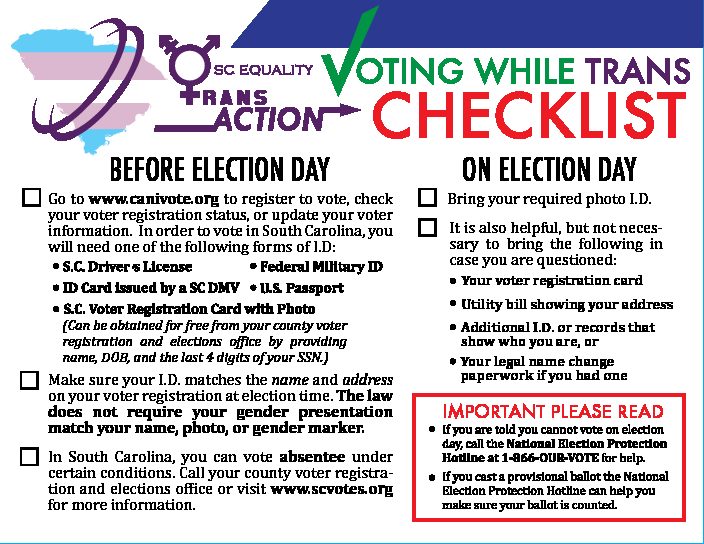
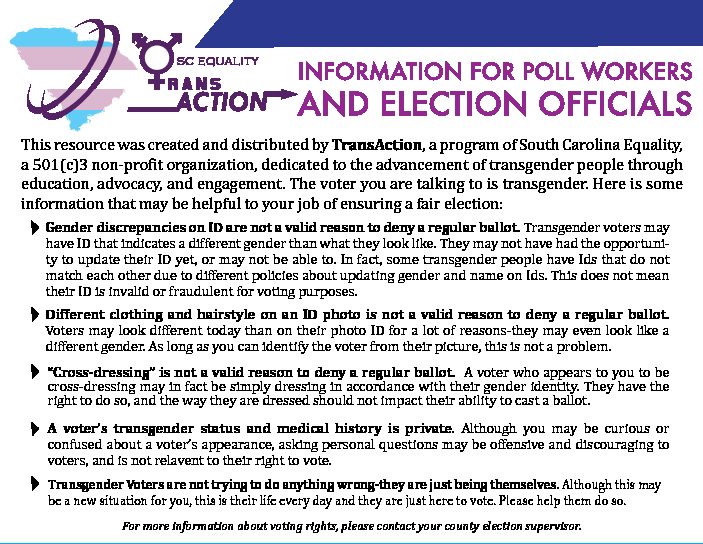
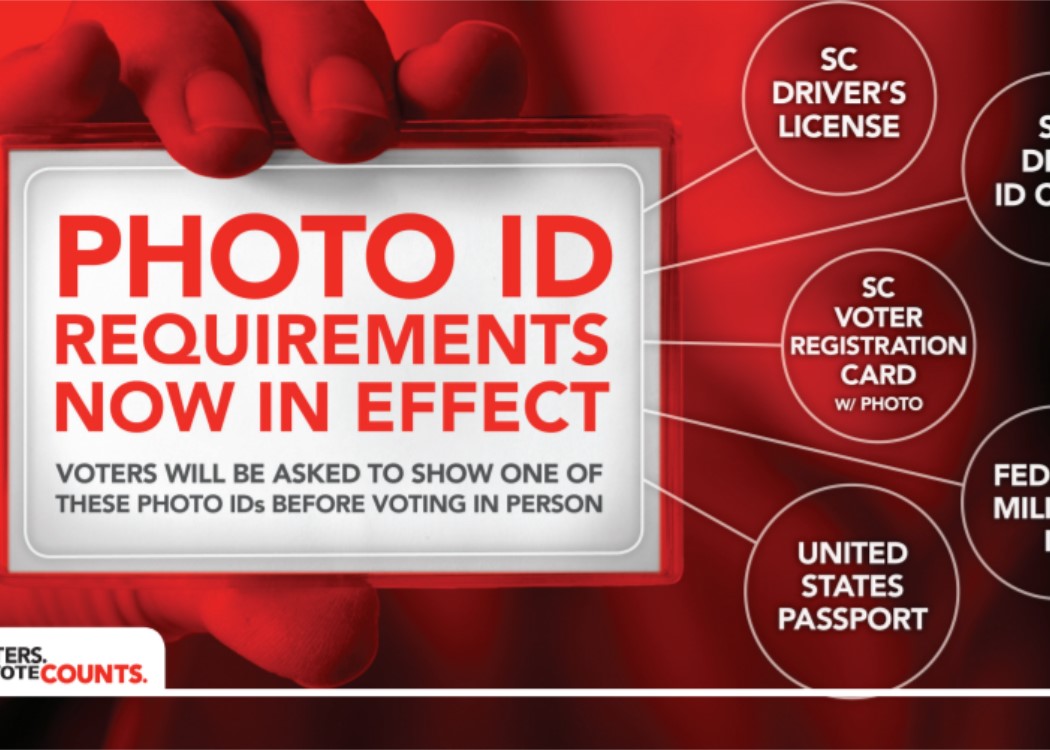
Before Election Day
- Go to http://www.canivote.org to register to vote, check your voter registration status, or update your voter information if needed.
- In order to vote in South Carolina, you will need one of the following forms of I.D.
- S.C. Driver’s License
- ID Card issued by S.C. Department of Motor Vehicles
- S.C. Voter Registration Card with Photo (Can be obtained for free from your county voter registration and elections office by providing name, DOB, and the last 4 digits of your SSN.)
- Federal Military ID
- U.S. Passport
- Make sure your I.D. matches the name and address on your voter registration at election time. The law does not require your gender presentation match your name, photo, or gender marker.
- In South Carolina, you can vote absentee under certain conditions. Call your county voter registration and elections office or visit http://www.scvotes.org for more information.
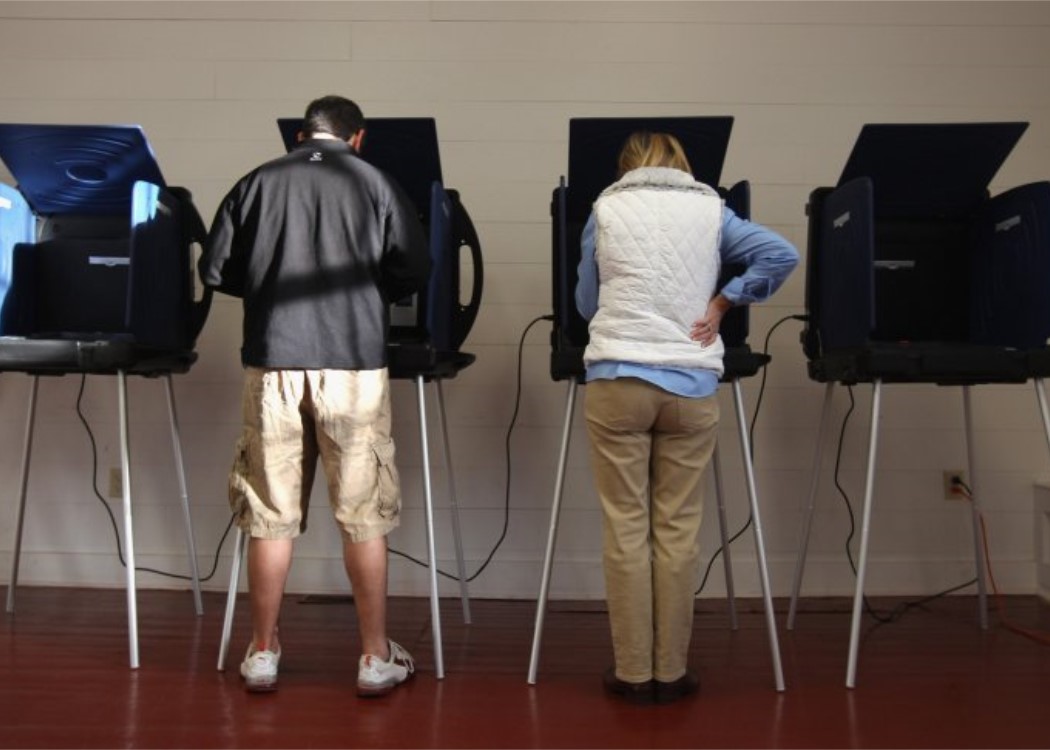
On Election Day
- Bring your required photo I.D.
- It is also helpful, but not necessary to bring the following in case you are questioned
- Your voter registration card
- A utility bill showing your address
- Additional I.D. or records that show who you are, or
- Your legal name change paperwork if you had one
- If you are told you cannot vote on Election Day, call the National Election Protection Hotline at 1-866-OUR-VOTE (1-866-687- 8683) for help.
- If you cast a provisional ballot the National Election Protection Hotline can help you make sure your ballot is counted.
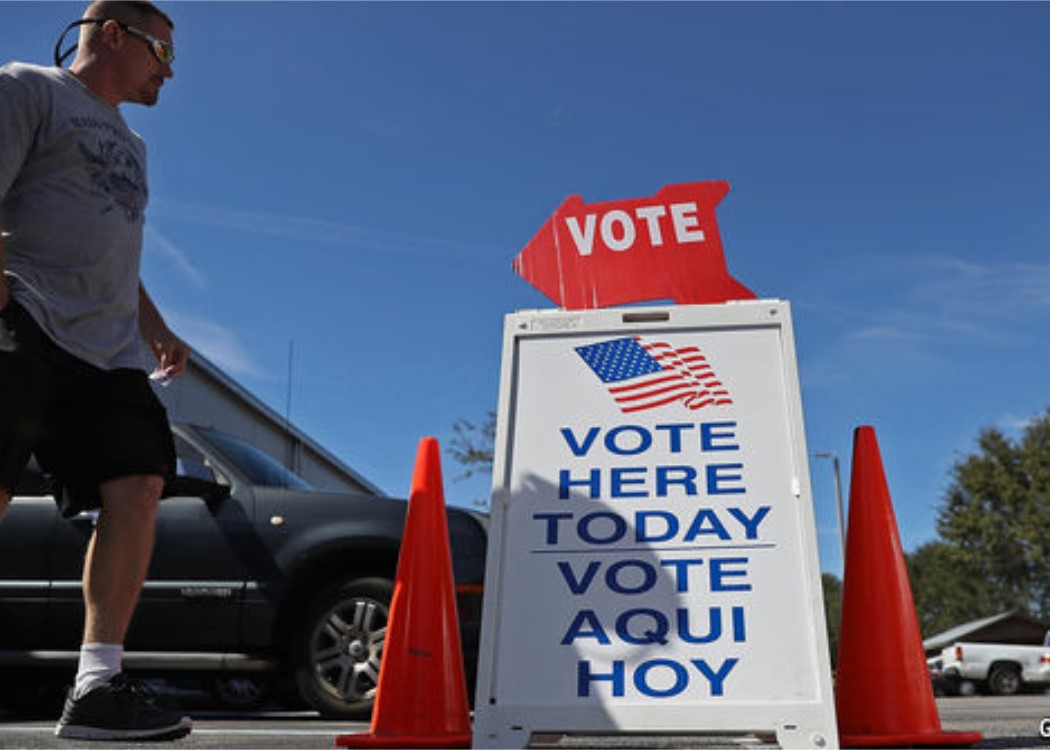
Information for Poll Workers and Election Officials
This resource was created and distributed by TransAction, a program of South Carolina Equality, a 501(c)3 non-profit organization, dedicated to the advancement of transgender people through education, advocacy, and engagement. The voter you are talking to is transgender. Here is some information that may be helpful to your job of ensuring a fair election:
- Gender discrepancies on ID are not a valid reason to deny a regular ballot. Transgender voters may have ID that indicates a different gender than what they look like. They may not have had the opportunity to update their ID yet, or may not be able to. In fact, some transgender people have Ids that do not match each other due to different policies about updating gender and name on Ids. This does not mean their ID is invalid or fraudulent for voting purposes.
- Different clothing and hairstyle on an ID photo is not a valid reason to deny a regular ballot. Voters may look different today than on their photo ID for a lot of reasons-they may even look like a different gender. As long as you can identify the voter from their picture, this is not a problem.
- “Cross-dressing” is not a valid reason to deny a regular ballot. A voter who appears to you to be cross-dressing may in fact be simply dressing in accordance with their gender identity. They have the right to do so, and the way they are dressed should not impact their ability to cast a ballot.
- A voter’s transgender status and medical history is private. Although you may be curious or confused about a voter’s appearance, asking personal questions may be offensive and discouraging to voters, and is not relevant to their right to vote.
- Transgender Voters are not trying to do anything wrong-they are just being themselves. Although this may be a new situation for you, this is their life every day and they are just here to vote. Please help them do so.
For more information about voting rights, please contact your county election supervisor.
Identification Documents
What is the process for changing my identification documents to reflect my true identity?
Court Process for Name Change
- In South Carolina, an important first step in changing one’s identification documents begins with pursuing a legal name change. This first step makes it easier to change the federal and state document outlined in this fact sheet.
- The requirements for legal name change are outlined in South Carolina Code Section 15-49-10.
- Resource Guide for the Name Change Process in SC
Federal Documentation
- Social Security Information (Legal Gender Change)
- As of June 2013, the Social Security Administration implemented a policy which allows for a transgender person to change their gender on their Social Security records by submitting either government-issued documentation reflecting a change, or a certification from a physician confirming that they have had appropriate clinical treatment for gender transition. This policy no longer requires that an individual have gender reassignment surgery to change their documentation.
- For more about this process, please see the National Center for Transgender Equality’s detailed guide regarding the specifics of this change.
- Passport (Legal Gender Change)
- Similar to the Social Security Administration, the US State Department no longer requires that an individual undergo Gender Reassignment Surgery (GRS) in order to have their gender marker changed on their passport.
- Understanding the New Passport Gender Change Policy
State Documentation
- Birth Certificate (Legal Gender Change)
- Statute: S.C. Code Ann. § 44-63-150 (2005)
- Administrative Code: S.C. Code Ann. Regs. 61-19 (2006)
- Although not explicitly addressed by statute or administrative code, South Carolina will issue an amendment as an attachment to the original birth certificate.
- Birth Certificate Policies by State
PLEASE NOTE: South Carolina Equality has received conflicting information in regards to this issue. A court order may be needed in order to make this change. According, obtaining a court order may require an additional statement from a physician indicating treatment has been completed. As with any information provided in this fact sheet, it is important to consult a lawyer for legal advice regarding your particular situation.
- Driver’s License (Legal Gender Change)
- South Carolina – “The general accepted method to change one’s gender is to present medical documentation that gender has been changed and a court order to the local DMV.”
- Driver’s License Policies by State
PLEASE NOTE: The South Carolina DMV have indicated to South Carolina Equality staff that medical documentation alone is insufficient to make the change. In order to issue an amended driver’s license, a court order or updated birth certificate are required. Please see above for more information on obtaining an updated birth certificate.
See Lambda Legal’s Transgender Resource Guide and Resources for Changing Your Documents for Additional Information


Workplace
Can a potential employer in South Carolina refuse to hire me because of my sexual orientation or gender identity? Can my current employer fire me or deny me a promotion on the basis of my sexual orientation or gender identity?
Title VII (Federal)
- While the Transgender community are not explicitly protected under federal or South Carolina law in the area of workplace non-discrimination, transgender employees protected under Title VII of the 1964 Civil Rights Act.
- In 2012, the Equal Employment Opportunity Commission (EEOC) declared unanimously that anti-trans bias was sex discrimination under Title VII.
- Title VII covers almost all of public and private-sector employees, as well as job applicants at companies with 15 or more employees.
- Additional Resource Regarding Title VII and the EEOC
- If you think you have a discrimination claim, call the EEOC: 1-800-669-4000 For more details, check out Transgender Law Center’s step-by-step guide to filing an EEOC charge.
Additional Lambda Legal Transgender Workplace Resource
Healthcare
Does my insurance policy cover transition-related care? What are my rights in regards to health provider discrimination?
Health Provider Discrimination
- With the passage of the Patient Protection and Affordable Care Act in 2010, it is now illegal for any health program or organization that is funded or administered by the federal government to discriminate against you because you are transgender, or because you are perceived as not conforming to gender stereotypes.
- These include:
-
- Physicians’ offices
-
- Hospitals
- Community Health Clinics
- Drug rehabilitation programs
- Rape crisis centers
- Nursing homes and assisted living facilities
- School- and university-based clinics
- Medical residency programs
- Home health providers
- Veteran’s health centers
- Health services in prison or detention facilities
-
- See this resources guide by the National Center for Transgender Equality for more detailed information regarding the new healthcare law.
- Additional Resource by the American Center for Progress — The Affordable Care Act: Progress Toward Eliminating Insurance Discrimination Against Transgender People
Transition-Related Care
- HRC Resource for Finding Insurance for Transgender-Related Healthcare
- See Section 13 of this guide developed by Strong Families to assist LGBT individuals and their families choose a healthcare plan.
- Lambda Legal Transgender Health Care Resource
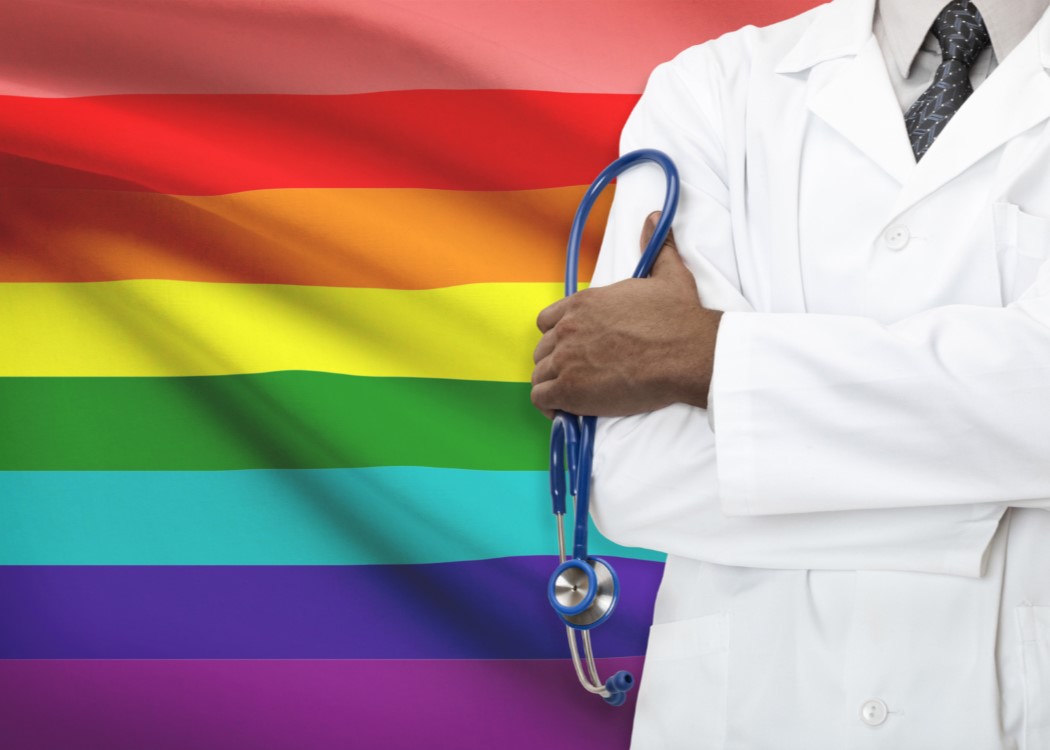
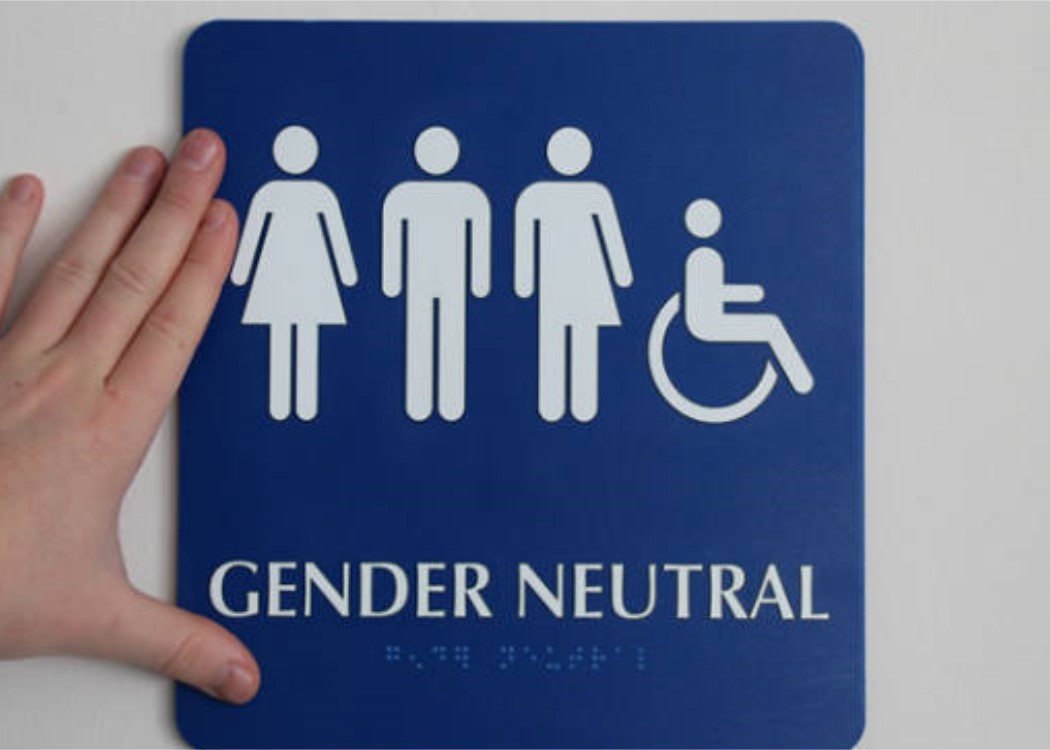
Restroom Access
What are my rights when it comes to public restroom access?
For an in-depth guide regarding the public restroom access, please see this Lambda Legal Restroom Access Resource
CLICK HERE FOR A COMPREHENSIVE LIST OF SOUTHEASTERN TRANS RESOURCES
Disclaimer
The Know Your Rights campaign is intended to provide general information regarding major areas of state and federal laws related to violence against LGBT people. It should not be construed as legal advice or a legal opinion on any specific facts or circumstances, and does not create an attorney-client relationship. Past practice is no guarantee of future developments. While laws and legal procedure are subject to frequent change and differing interpretations in the ordinary course, this is even more true now with daily advances in LGBT equality. SC Equality cannot ensure the information is current or be responsible for any use to which it is put.
Contact a qualified attorney or law enforcement officer in South Carolina for legal advice about your particular situation.
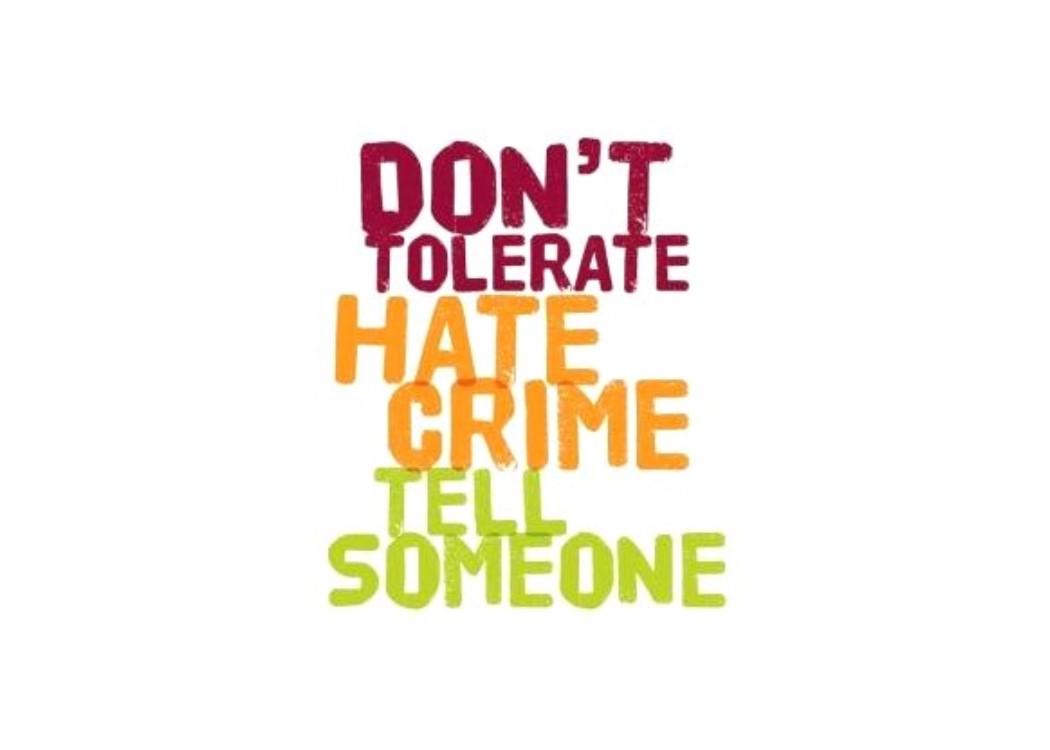
Hate Crimes & Violence Prevention
The fear of discrimination and exclusion are not the only worries faced on a day-to-day basis by the LGBT community. Many LGBT individuals worry for their personal safety and lack the knowledge of what are the appropriate steps to take if they became a victim of violence. The truth is that crimes against LGBT people happen each day, leaving survivors unsure of what to do next. This fact sheet has been designed to outline the laws which may protect you and services which can assist you. Do you know your rights?
What are my protections when it comes to hate-motivated violence on the basis of sexual orientation or gender identity at the federal-level?
Federal Protections
Matthew Shepard and James Byrd, Jr. Hate Crimes Prevention Act (18 U.S.C. § 249)*
- Under the Matthew Shepard and James Byrd, Jr. Hate Crimes Prevention Act of 2009, the Department of Justice authority to investigate and prosecute violent crimes when the victim is selected because of his or her actual or perceived race, color, religion, national origin, gender, sexual orientation, gender identityor disability. In addition, it enables DOJ to aid state and local jurisdictions with investigations and prosecutions of bias-motivated crimes of violence. (HRC Resource)
- The law also requires the Federal Bureau of Investigation (FBI) to track statistics on hate crimes based on gender and gender identity, and hate crimes committed by and against juveniles (statistics for the other categories, including sexual orientation, were already tracked as a result of the Hate Crimes Statistics Act and its subsequent updates). The FBI uses these statistics for its annual Hate Crimes Statistics Report, which can be viewed here.
- It should also be noted that the Hate Crimes Prevention Act DOES NOT Protect Individuals From:
- non-violent hate crimes
- hate crimes committed solely against one’s property
*non-violent or property hate crime occurs in a state, it must be prosecuted under that state’s hate crimes law — if such a hate crimes law applies or exists. (not applicable to South Carolina)
Prison Rape Elimination Act (PREA) (Public Law 108-79)
- The Prison Rape Elimination Act (PREA) Standards are a comprehensive set of federal rules that address all aspects of a facility’s operations as they relate to preventing, detecting, and responding to abuse.
- The members of the LGBT community are among those particularly at risk for sexual abuse, which was addressed by the US Department of Justice final regulation in May of 2012.
- For more information regarding these final regulations, check out NCTE’s resource guide: LGBT People and the Prison Rape Elimination Act
Violence Against Women Act (VAWA)
- (Title IV, sec. 40001-40703 of the Violent Crime Control and Law Enforcement Act of 1994, H.R. 3355
- The Violence Against Women Act “enhances the investigation and prosecution of violent crimes against women, which through the Office on Violence Against Women (OVW), administers financial and technical assistance to communities across the country that are developing programs, policies, and practices aimed at ending domestic violence, dating violence, sexual assault, and stalking.”
- As of 2013, any program receiving DOJ or Department funds are prohibited from discriminating against recipients based on sexual orientation or gender identity among other enumerated protected classes. (Nondiscrimination Grant Condition in the Violence Against Women Reauthorization Act of 2013)
State Protections & Resources
- South Carolina currently does not have any existing statues which will protect LGBT individuals in the areas of hate crimes protection of LGBT domestic violence, however there are resources available to LGBT individuals and their families.


At the state and local-level, what resources are available to me, if I feel I have been the victim of hate-motivated? Are there any services available to me as an LGBT individual in the area of interpersonal domestic violence?
SCCADVASA Victim’s Assistance
- The South Carolina Coalition Against Domestic Violence and Sexual Assault (SCCADVASA) is a statewide coalition made up of the 23 domestic violence and sexual assault advocacy programs in South Carolina. Since 1981, SCCADVASA has been a leader in representing the critical needs of survivors and their families.
- SCCADVASA is currently working SC Equality’s TransAction make these listed resources more Trans-inclusive.
Local-Level Protections & Resources
- Richland County – Victim’s Assistance
- Richland County Sheriff Department (Richland County residents only): Gay and Lesbian Liaison Officer (GLLO), this investigator serves as a point of contact for members of the gay, lesbian, bisexual and transgendered persons who are victims of crime.
- “The Richland County Sheriff’s Department is dedicated to the principle that all persons in Richland County will be provided equal protection under the laws of this state, and the federal government as well as any ordinances set forth by the Richland County Council. It is the goal of our department to treat all victims of crime with compassion and respect, ensuring that their dignity is maintained and to promote healing of the suffering they may have endured. No victim of crime will be turned away for any reason or discriminated against based on sex, race, religion, social or economic status, sexual orientation, age, or mental or physical disability.”
- Call (803) 576-3462 or visit: http://www.rcsd.net/inv/vicassistance.htm for the extensive list of resources provided by the Victim’s Assistance Unit
- LGBTQ Interpersonal Violence Task Force
- The LGBTQ IVP Task Force, an initiative championed by the Harriet Hancock LGBT Center, “provides education, marketing, and a support group for the community to strengthen positive and healthy relationships within the LGBTQ community and provide services to members of the community who find themselves in need of direct services when experiencing interpersonal violence.” (website)
- If you are interested in attending a support group with other survivors and learning how you can protect yourself from further violence, please call the 24 Hour Service Line, (803) 926-4948, for group information please contact IPVSupportGroup@LGBTCenterSC.org.
Disclaimer
The Know Your Rights campaign is intended to provide general information regarding major areas of state and federal laws related to violence against LGBT people. It should not be construed as legal advice or a legal opinion on any specific facts or circumstances, and does not create an attorney-client relationship. Past practice is no guarantee of future developments. While laws and legal procedure are subject to frequent change and differing interpretations in the ordinary course, this is even more true now with daily advances in LGBT equality. SC Equality cannot ensure the information is current or be responsible for any use to which it is put.
Contact a qualified attorney or law enforcement officer in South Carolina for legal advice about your particular situation.
